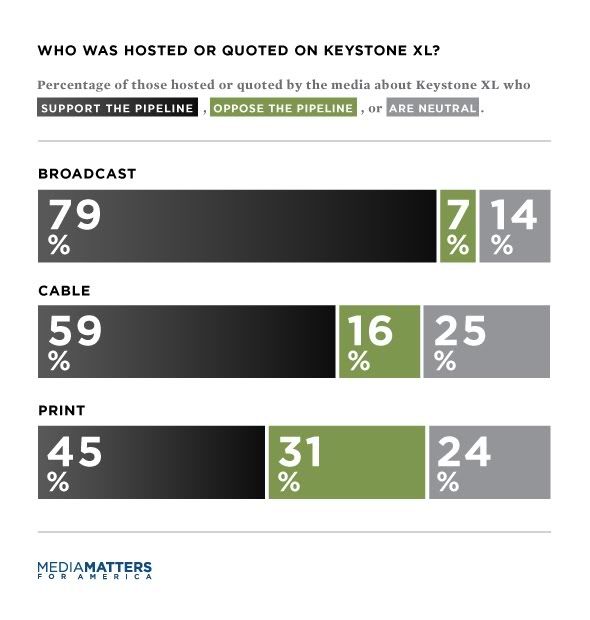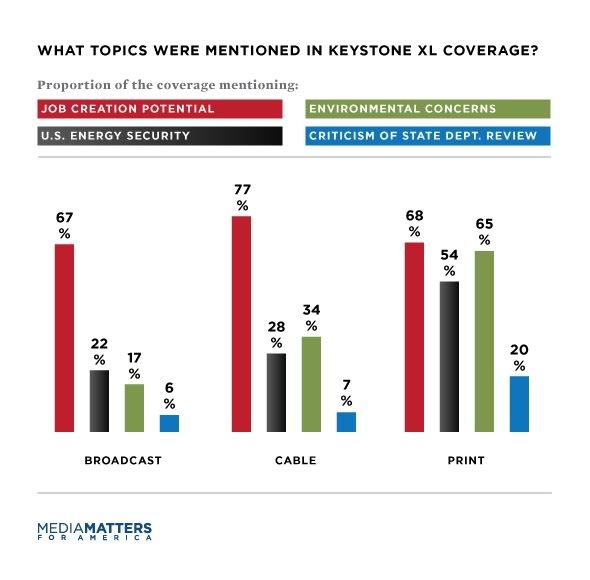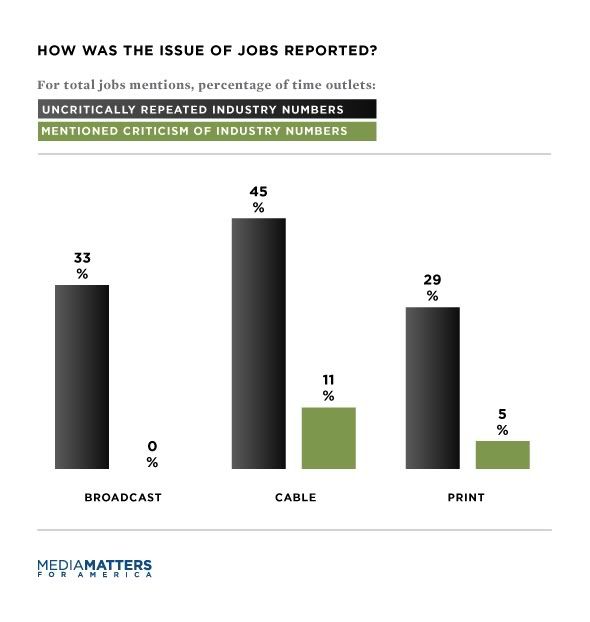A compelling new study from Media Matters for America reveals that proponents of the Keystone XL pipeline were granted far more time in the media than those who opposed it. As their study reveals, the majority of the coverage of the proposed pipeline regarded the creation of jobs, which was overwhelmingly discussed in a positive light, with most news outlets reporting only the industry’s own analysis of the jobs that would be created, even as reports repeatedly showed the industry’s job numbers to be false.
In general, the report shows that the pipeline issue was often covered in a positive light, with industry “experts” being quoted or hosted on TV news programs, as well as in print. The only two print outlets that the study found to have reported more negatively about the pipeline were The Los Angeles Times and USA Today. However, they note that the USA Today editorial board did come out in favor of the pipeline.
Here is a chart detailing coverage by type of media outlet:
As mentioned above, the main area of concern for the media was on the job creation issue, which is exactly what the industry wanted them to focus on. In contrast, the potential environmental damage and costs were often completely overlooked. From their report:
Media Framed Pipeline As A Jobs Issue. Although the pipeline would lead to a small number of long-term jobs, the potential for job creation from the pipeline was mentioned in 68% of print coverage, 67% of broadcast coverage and 75% of cable coverage.
The pipeline proponents won the day on the issue of jobs, and many media outlets blindly repeated the industry’s own numbers without any sort of critical analysis of the numbers, or any reporting on the plethora of information that showed that the industry’s numbers were bogus. In total, the TransCanada’s talking points on jobs were repeated, verbatim, 76 times in the media.
Here is another chart from Media Matters that tells the talking point parroting story:
Cable TV news stations followed predictable patterns with their coverage of pipeline issues: MSNBC reported on environmental impacts of the pipeline in 50% of their coverage, while Fox News only reported on the massive protests against the pipeline in 15% of their coverage. In all, MSNBC was the only network that covered environmental impacts in half of their coverage, the closest behind them being ABC News, which covered environmental issues in 33% of their coverage.
Surprisingly, CNN reported on environmental concerns regarding the pipeline the least (even behind Fox News) with only 22% of their coverage being devoted to covering the potential environmental impacts of the pipeline.
The new study certainly reveals that the media did their best to help make the Keystone XL pipeline a reality. But what’s really surprising is that it didn’t seem to make a difference. The project is indefinitely stalled for now. This could be a strong indication that independent media (and independent thinking) are beginning to have just as much impact on policy and public attitudes as the traditional media outlets.
Subscribe to our newsletter
Stay up to date with DeSmog news and alerts










